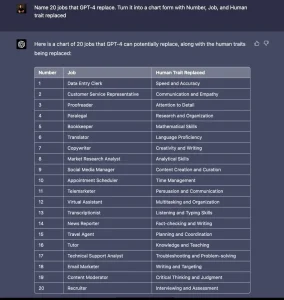Introduction
The roles of data analysts and project managers are increasingly intertwined, yet they often operate in silos. Understanding the distinct responsibilities of each role is crucial for fostering effective collaboration.
- Defining the Roles: Data analysts are tasked with interpreting complex datasets to extract meaningful insights that inform decision-making. They focus on analyzing trends, identifying patterns, and providing actionable recommendations based on data. On the other hand, project managers oversee the planning, execution, and completion of projects, ensuring that objectives are met within scope, time, and budget constraints. They coordinate resources, manage timelines, and communicate with stakeholders to keep projects on track.
- Significance of Teamwork: The success of any project hinges on the ability of team members to work together effectively. Strong teamwork enhances collaboration among data analysts and project managers, leading to improved performance and more accurate outcomes. When these two roles collaborate, they can leverage their unique strengths to drive project success, ensuring that data-driven insights are seamlessly integrated into project planning and execution.
- Collaboration Over Competition: Emphasizing collaboration over competition is essential in creating a unified team. Rather than viewing each other as separate entities with conflicting goals, data analysts and project managers should recognize the value of their partnership. By fostering an environment where both roles work together towards common objectives, organizations can enhance productivity, creativity, and overall project outcomes. This collaborative approach not only improves communication but also encourages mutual learning, allowing both data analysts and project managers to grow and adapt in their respective roles.
Understanding the Roles: Data Analysts vs. Project Managers
The collaboration between data analysts and project managers is crucial for achieving organizational goals. While both roles are integral to the success of projects, they possess distinct responsibilities and skill sets that, when combined, can lead to enhanced performance and decision-making.
Primary Responsibilities of Data Analysts
Data analysts play a vital role in transforming raw data into actionable insights. Their primary responsibilities include:
- Data Collection: Data analysts gather data from various sources, ensuring that the information is relevant and accurate. This foundational step is critical for any subsequent analysis.
- Data Analysis: They employ statistical tools and techniques to analyze data, identifying trends, patterns, and anomalies that can inform business decisions.
- Data Interpretation: Beyond analysis, data analysts interpret the results, translating complex data findings into understandable insights that stakeholders can act upon. This often involves creating visualizations and reports to communicate their findings effectively [11][10].
Primary Responsibilities of Project Managers
Project managers, on the other hand, are responsible for overseeing the entire project lifecycle. Their key responsibilities include:
- Planning: They develop project plans that outline the scope, objectives, timelines, and resources required for successful project completion.
- Execution: Project managers lead the team in executing the project plan, ensuring that tasks are completed on time and within budget.
- Monitoring: They continuously monitor project progress, making adjustments as necessary to keep the project on track. This includes managing risks and addressing any issues that arise.
- Closing: Upon project completion, project managers are responsible for closing the project, which involves finalizing deliverables, obtaining stakeholder approval, and conducting post-project evaluations to identify lessons learned [3][4][9].
Complementary Skill Sets
The skill sets of data analysts and project managers complement each other in several ways:
- Analytical Skills: Data analysts bring strong analytical skills that help project managers make informed decisions based on data-driven insights. This collaboration ensures that project strategies are grounded in empirical evidence rather than assumptions.
- Communication: Effective communication is essential for both roles. Data analysts must convey complex data findings in a way that project managers can understand and utilize, while project managers must articulate project goals and expectations clearly to data analysts.
- Strategic Alignment: Project managers focus on aligning project outcomes with organizational goals, while data analysts provide the insights needed to inform these strategic decisions. Together, they ensure that projects not only meet their objectives but also contribute to the broader business strategy [1][8][14].
By understanding the distinct yet complementary roles of data analysts and project managers, team leaders and managers can foster a collaborative environment that leverages the strengths of both positions. This synergy not only enhances project outcomes but also drives innovation and efficiency within the organization.
Common Goals: Aligning Objectives
The collaboration between data analysts and project managers is crucial for achieving successful outcomes. By identifying and aligning their common objectives, these two roles can work together more effectively, leading to enhanced project performance and insightful results. Here are some strategies and insights on fostering this collaboration through shared goals:
Identifying Common Objectives
- Understanding Each Role’s Contributions: Data analysts focus on interpreting data to derive insights, while project managers oversee the planning and execution of projects. Recognizing how each role contributes to the overall project can help in identifying shared objectives. For instance, both roles aim to deliver projects on time and within budget, which can serve as a foundational goal for collaboration [2][7].
- Setting Clear, Measurable Goals: Establishing specific, measurable objectives that both data analysts and project managers can work towards is essential. This could include targets such as improving data accuracy, reducing project turnaround time, or increasing stakeholder satisfaction. By having clear goals, both teams can align their efforts and track progress effectively [12][15].
Impact of Aligned Goals on Project Outcomes
- Enhanced Collaboration: When data analysts and project managers share common objectives, it fosters a culture of teamwork. This collaboration leads to improved communication and a better understanding of each other’s challenges and contributions, ultimately resulting in more accurate data interpretation and project execution [1][2].
- Increased Efficiency: Aligned goals streamline processes and reduce the likelihood of misunderstandings. For example, when both teams are focused on the same project milestones, they can coordinate their efforts more efficiently, leading to quicker decision-making and problem-solving [3][4].
- Improved Project Success Rates: Projects that benefit from aligned objectives often see higher success rates. When data analysts and project managers work towards the same goals, they can leverage each other’s strengths, leading to innovative solutions and better project outcomes. This unity of purpose is crucial for driving projects to successful conclusions [3][8].
Examples of Successful Projects
- Case Study: Marketing Campaign Analysis: In a recent marketing campaign, a data analyst collaborated closely with the project manager to analyze customer data and identify target demographics. By aligning their goals—maximizing campaign reach and engagement—they were able to create a data-driven strategy that resulted in a 30% increase in customer engagement compared to previous campaigns. This success was attributed to their shared focus on understanding customer behavior and optimizing resources [6][11].
- Case Study: Product Development: Another example can be seen in a product development project where the data analyst and project manager worked together to define success metrics early in the project. By agreeing on objectives such as user satisfaction and product performance, they were able to make informed decisions throughout the development process, leading to a product that exceeded market expectations and received positive feedback from users [5][10].
Effective Communication Strategies
The collaboration between data analysts and project managers is crucial for the success of any project. To foster a unified team, implementing effective communication strategies is essential. Here are some key points to consider:
- Importance of Clear and Open Communication Channels: Establishing clear communication channels is fundamental to bridging the gap between data analysts and project managers. This ensures that both parties can share insights, updates, and feedback without misunderstandings. By promoting transparency and active listening, teams can create an environment where everyone feels valued and heard, leading to better project outcomes [2][10].
- Tools and Platforms for Enhanced Communication: Leveraging digital collaboration tools can significantly improve communication efficiency. Platforms like Slack and Trello facilitate real-time discussions and project tracking, allowing team members to stay connected and informed. These tools help in organizing tasks, sharing data insights, and maintaining a clear overview of project progress, which is vital for both data analysts and project managers [1][5].
- Regular Check-Ins and Updates: Implementing regular check-ins and updates is a best practice that fosters collaboration. These meetings provide an opportunity for both teams to discuss progress, address challenges, and align on priorities. By scheduling weekly sync-ups, project managers can decouple priority items from the rest, ensuring that both data analysts and project managers remain focused and aligned on project goals [12][9]. This practice not only enhances communication but also builds a culture of accountability and teamwork.
By prioritizing these communication strategies, team leaders and managers can create a collaborative environment that empowers both data analysts and project managers to work together effectively, ultimately leading to successful project outcomes.
Cross-Functional Training and Knowledge Sharing
Fostering collaboration between data analysts and project managers is essential for achieving project success. One effective approach to enhance this collaboration is through cross-functional training and knowledge sharing. Here are some key points to consider:
Benefits of Cross-Training
- Enhanced Understanding: Cross-training allows data analysts to gain insights into project management processes, while project managers can better appreciate the intricacies of data analysis. This mutual understanding can lead to more effective communication and collaboration, ultimately improving project outcomes [2][10].
- Improved Problem-Solving: When both roles are equipped with knowledge of each other’s responsibilities, they can work together to identify and solve problems more efficiently. This synergy can lead to innovative solutions that might not have been possible in a siloed environment [12].
- Increased Flexibility: Cross-trained team members can step in for one another when needed, ensuring that projects continue to move forward smoothly, even in the face of unexpected challenges. This flexibility can be particularly beneficial in fast-paced project environments [10].
Formats for Knowledge-Sharing Sessions
- Workshops: Organizing workshops where data analysts and project managers can share their expertise can be highly beneficial. These sessions can focus on specific topics, such as data interpretation techniques or project planning methodologies, allowing participants to engage in hands-on learning [3][4].
- Lunch-and-Learns: Informal lunch-and-learn sessions provide a relaxed environment for team members to share knowledge. These gatherings can feature presentations, discussions, or even case studies that highlight successful collaborations between data analysts and project managers [4][6].
- Mentorship Programs: Establishing mentorship programs where experienced data analysts and project managers guide their peers can foster deeper relationships and facilitate knowledge transfer. This one-on-one interaction can help build trust and encourage open communication [12].
Shared Knowledge Leading to Better Decision-Making
- Informed Decisions: When data analysts and project managers share knowledge, they can make more informed decisions based on a comprehensive understanding of both data insights and project objectives. This collaborative approach ensures that decisions are grounded in both analytical rigor and practical project considerations [10][12].
- Alignment on Goals: Knowledge sharing helps align the goals of data analysts and project managers, ensuring that both parties are working towards a common objective. This alignment is crucial for maintaining focus and driving project success [9][10].
- Fostering a Data-Driven Culture: By encouraging collaboration and knowledge sharing, organizations can cultivate a data-driven culture where decisions are based on insights rather than assumptions. This cultural shift can lead to more effective project management and improved overall performance [5][12].
Leveraging Data for Better Project Management
The collaboration between data analysts and project managers is crucial for driving project success. By leveraging data-driven insights, teams can enhance their planning processes, manage risks more effectively, and make informed decisions that lead to successful project outcomes. Here are some strategies and examples that illustrate the importance of this collaboration.
The Role of Data Analysis in Project Planning and Risk Management
Data analysis plays a pivotal role in project planning by providing insights that inform decision-making. Here are some key aspects:
- Informed Decision-Making: Data analysts can analyze historical project data to identify trends and patterns that inform future project planning. This includes understanding resource allocation, timelines, and potential bottlenecks, which can significantly enhance the accuracy of project estimates and schedules [1].
- Risk Assessment: By utilizing data analytics, project managers can identify potential risks early in the project lifecycle. Data analysts can provide insights into risk factors based on previous projects, allowing project managers to develop mitigation strategies proactively. This collaborative approach ensures that risks are managed effectively, reducing the likelihood of project delays or failures [2].
Examples of Data-Driven Decision-Making Leading to Project Success
Several organizations have successfully integrated data analysis into their project management processes, leading to improved outcomes:
- Case Study: Tech Company: A tech company utilized data analytics to assess user feedback and product performance metrics during the development of a new software application. By analyzing this data, the project team was able to pivot their strategy based on user needs, resulting in a product that exceeded initial performance expectations and achieved a higher market adoption rate [3].
- Case Study: Construction Firm: A construction firm implemented data-driven project management by analyzing past project timelines and costs. This analysis allowed them to identify inefficiencies in their processes. As a result, they were able to streamline operations, reduce costs by 15%, and complete projects ahead of schedule [4].
Encouraging Data Analysts to Present Actionable Findings
For the collaboration between data analysts and project managers to be effective, it is essential that data analysts present their findings in a manner that is actionable and relevant to project goals:
- Clear Communication: Data analysts should focus on translating complex data into clear, concise insights that project managers can easily understand. This includes using visualizations and dashboards that highlight key metrics and trends relevant to the project [5].
- Action-Oriented Recommendations: Analysts should not only present data but also provide actionable recommendations based on their findings. This approach empowers project managers to make informed decisions quickly and effectively, fostering a culture of collaboration and shared responsibility [6].
- Regular Collaboration Meetings: Establishing regular meetings between data analysts and project managers can facilitate ongoing communication and ensure that data insights are continuously integrated into project planning and execution. This collaborative environment encourages both roles to share knowledge and align their objectives [7].
Building Trust and Respect
The collaboration between data analysts and project managers is crucial for achieving successful outcomes. A foundation of trust and respect is essential for fostering effective teamwork, enabling both roles to leverage their unique strengths and perspectives. Here are some key points to consider:
The Role of Trust in Fostering Collaboration
Trust serves as the cornerstone of any collaborative effort. When data analysts and project managers trust one another, they are more likely to share information openly, engage in constructive discussions, and work towards common goals. This trust can lead to:
- Enhanced Communication: Team members feel comfortable expressing their ideas and concerns, leading to more effective problem-solving and innovation.
- Increased Accountability: When trust is established, individuals are more likely to take ownership of their responsibilities, knowing that their contributions are valued and recognized.
Tips for Building Trust
- Recognizing Contributions: Acknowledging the efforts and successes of both data analysts and project managers is vital. Celebrating achievements, whether big or small, fosters a sense of belonging and motivates team members to continue contributing positively. This recognition can be formal, such as during team meetings, or informal, like a simple thank-you note.
- Encouraging Feedback: Creating an environment where feedback is welcomed and acted upon is essential for building trust. Regular check-ins and open discussions about project progress allow team members to voice their opinions and suggestions. This practice not only improves processes but also demonstrates that each person’s input is valued.
The Importance of Mutual Respect
Mutual respect for each other’s expertise and perspectives is fundamental in a collaborative environment. Data analysts bring technical skills and data-driven insights, while project managers contribute strategic planning and organizational skills. Recognizing and valuing these differences can lead to:
- Better Decision-Making: When both roles respect each other’s expertise, they can make more informed decisions that consider various aspects of a project.
- Stronger Team Cohesion: A culture of respect encourages team members to support one another, leading to a more unified and motivated team.
Case Studies: Successful Collaborations
The synergy between data analysts and project managers can significantly enhance project outcomes. Here, we explore real-world examples where effective collaboration has led to success, analyze the strategies employed, and draw lessons that can be applied to other teams.
Case Study 1: Product Development at Tech Innovations Inc.
- Project Overview: At Tech Innovations Inc., a new product was being developed that required extensive market analysis and data-driven decision-making. The project manager and data analysts worked closely to ensure that the product met customer needs and market demands.
- Collaboration Strategies:
- Inclusion in Planning: Data analysts were included in the initial sprint planning sessions, allowing them to align their insights with the project manager’s objectives. This ensured that data-driven decisions were made from the outset, enhancing the relevance of the analysis [3].
- Regular Updates: Weekly meetings were established to discuss progress, challenges, and insights derived from data analysis. This open dialogue fostered a culture of transparency and mutual respect [14].
- Lessons Learned:
- Early Involvement: Including data analysts early in the project planning phase can lead to more informed decision-making and a clearer understanding of project goals.
- Continuous Communication: Regular updates and discussions help maintain alignment and address any issues promptly, preventing miscommunication and project delays.
Case Study 2: Marketing Campaign at Creative Solutions Agency
- Project Overview: Creative Solutions Agency launched a marketing campaign aimed at increasing brand awareness. The collaboration between the project manager and data analysts was crucial in measuring campaign effectiveness and adjusting strategies in real-time.
- Collaboration Strategies:
- Data-Driven Adjustments: The project manager relied on data analysts to provide real-time analytics on campaign performance. This allowed for quick adjustments to marketing strategies based on data insights [9].
- Cross-Functional Teams: The project team included members from various departments, including marketing, data analysis, and finance, fostering a collaborative environment where diverse perspectives were valued [8].
- Lessons Learned:
- Flexibility in Strategy: Being open to adjusting strategies based on data insights can lead to more effective outcomes and a higher return on investment.
- Diverse Perspectives: Encouraging input from various team members can enhance creativity and lead to innovative solutions.
Case Study 3: Operational Efficiency at Global Logistics Corp.
- Project Overview: Global Logistics Corp. aimed to improve operational efficiency through a data-driven approach. The collaboration between the project manager and data analysts was pivotal in identifying bottlenecks and optimizing processes.
- Collaboration Strategies:
- Facilitated Communication: Data analysts acted as a bridge between the operations team and project management, ensuring that insights were communicated effectively to all stakeholders [8].
- Mutual Learning Opportunities: The project manager and data analysts engaged in knowledge-sharing sessions, where both parties learned from each other’s expertise, fostering a culture of continuous improvement [9].
- Lessons Learned:
- Bridging Gaps: Data analysts can play a crucial role in facilitating communication between different teams, ensuring that everyone is on the same page.
- Continuous Learning: Creating opportunities for mutual learning can enhance team cohesion and improve overall project outcomes.
Conclusion: Embracing Collaboration for Future Success
The synergy between data analysts and project managers is not just beneficial; it is essential for achieving organizational goals. By prioritizing collaboration over competition, teams can harness the unique strengths of both roles, leading to enhanced performance and more insightful outcomes.
Benefits of Collaboration Over Competition:
- Improved Decision-Making: When data analysts and project managers work together, they can combine analytical insights with strategic planning, resulting in more informed decisions that drive project success. This collaboration fosters a deeper understanding of key performance indicators (KPIs) and financial metrics, enabling teams to navigate complex challenges effectively [3][9].
- Enhanced Team Performance: Strong teamwork significantly boosts collaboration, which in turn leads to more accurate and insightful results. By leveraging each other’s expertise, data analysts can provide critical data interpretations while project managers can align these insights with project objectives, creating a cohesive approach to problem-solving [2][4].
- Fostering Innovation: A collaborative environment encourages creativity and innovation. When team members feel valued and supported, they are more likely to share ideas and propose solutions that can lead to groundbreaking results [11].
Encouraging Team Leaders to Implement Strategies:
To cultivate a culture of collaboration, team leaders should consider implementing the following strategies:
- Establish Clear Communication Channels: Encourage open and honest dialogue between data analysts and project managers. This transparency helps in aligning goals and expectations, ensuring that everyone is on the same page [13][15].
- Promote Mutual Learning: Create opportunities for team members to learn from each other. Data analysts can share their technical expertise, while project managers can provide insights into project management best practices, fostering a culture of continuous improvement [7][10].
- Utilize Collaboration Tools: Leverage modern collaboration tools to facilitate seamless communication and project tracking. These tools can help bridge the gap between data analysis and project management, making it easier for teams to collaborate effectively [4][15].
As we move forward, it is imperative for team leaders and managers to actively promote a collaborative culture within their teams. By embracing the principles of teamwork and collaboration, organizations can unlock the full potential of their data analysts and project managers. This unified approach not only enhances project outcomes but also prepares teams to tackle future challenges with confidence and creativity.
In conclusion, the path to success lies in collaboration. By fostering a culture that values teamwork, organizations can ensure that both data analysts and project managers work hand in hand, driving innovation and achieving shared goals. Let us commit to building a collaborative environment that empowers every team member to contribute their best, paving the way for future success.
Find out more about Shaun Stoltz https://www.shaunstoltz.com/about/.
This post was written by an AI and reviewed/edited by a human.



